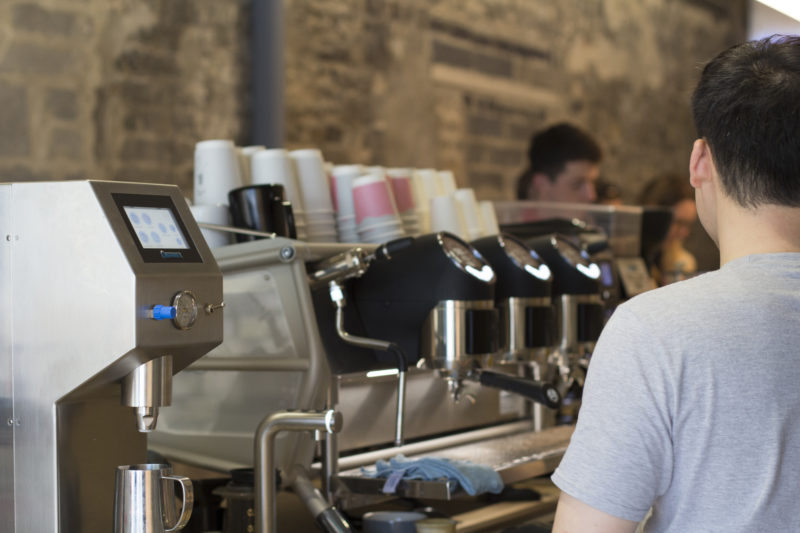
The recent publication of a report by the Intergovernmental Panel on Climate Change (IPCC) has made waves in the past few days and has left many feeling despondent as to the fate of our planet.
The report was searingly clear on how climate change has been indisputably caused by human action and more devastatingly, leaves gives little hope to the “power of one” mentality. Although the onus for halting climate change should not fall on the average person, there is no reason we can’t try to help – and often, making small changes can feel empowering, and if the demand for sustainability is there, it can lead to bigger changes in the future.
One particular source of encouragement can be found in the many cafés and restaurants in Dublin that are making strides towards reducing their carbon footprint. Among coffee producers, Imbibe coffee roasters and Cloud Picker’s actions live up to their ecological manifestos. Imbibe supports small, female-only co-operative bean producers and has almost entirely eliminated single-use coffee containers. Similarly, Cloud Picker supports small farms and larger co-ops and pays above the fair-trade price for its coffee, donates coffee chaff (the dried skin on a coffee bean) and grounds to local allotments around Crumlin where their roastery is located and delivers coffee via a 100 per cent electric van.
When hunger hits, there are many foodie spots around Dublin city that have made laudable efforts to up their sustainability game in recent years. The Fumbally takeaway packaging is all biodegradable, and all its fermented foods are produced in house which helps to prolong the life of the food and reduce waste. Fumbally also makes its own sunflower seed milk (more on plant-based milk later!). The always mouth-watering Lucky Tortoise has removed all beef and dairy from its menu due to the products’ hefty climate footprint. It also serves all drinks on tap so cans and bottles are eliminated. Whenever the unshakeable craving for a good, juicy burger takes hold, be sure to head to (or order online from) BuJo burgers of Sandymount: all packaging is 100 per cent compostable, ingredients all sustainably sourced, electricity is fully renewable and even the staff uniforms are ethically sourced. BuJo also does an excellent vegan burger and milkshake.
To quench your thirst, BrewDog’s Dublin outpost at Grand Canal Dock should be top of your list: it has recently launched LOST beer, a carbon-negative lager. If you can’t make it out to the bar, BrewDog has pledged to plant a tree for every four-pack of LOST purchased.
Finally, Tang, which is teasingly close to Trinity, has launched a campaign to give out a free flatbread to anyone who shows that they emailed their local TDs demanding climate action.
Entering the world of sustainability can be daunting, and it can often seem that everything we are doing is wrong. However, there are many small changes that can make a difference to the world, without making too much of a difference to your life – or pocket. Reducing meat consumption, in particular red meat, is the first step that can make a great difference to your individual carbon footprint. More than 25 per cent of greenhouse gas emissions come from food production, and over half of this is from animal-based products. A trusty alternative need not be found in often expensive seitan or so forth (though this is not difficult to make at home, and is delicious!) as the humble green lentil can be a flawless substitute in recipes such as kheema aloo/matar, chilli con carne, lasagna and Bolognese.
Tofu, when coated in corn flour, Indian spices and fried, or marinated in chilli, lime & soya (to mention just a few methods) can replicate the moreish-ness that chicken can bring to a meal. Tofu is made from curdled soya and in recent years, discussions around soya production have become messy due to its need for extensive amounts of land leading to deforestation of Amazonian regions. However, it is important to be wary of arguments such as these – in fact, 75 per cent of soya production goes towards livestock feed (which is obviously used to feed meat-eaters). Tofu can also be expensive, especially when buying organic.
Often the best way forward for a plant-based diet – in terms of nutrition, sustainability and not breaking the bank – is a pulse-heavy regime, including lentils, beans, chickpeas and so on.
The argument around which plant milk is most climate sensitive is ongoing and can in all honesty act as a distraction from the important factors in climate change. Nevertheless, let’s discuss once more: Almond milk guzzles water, with one study by California State University showing that it takes 12 litres to produce just one nut. As well as this, the jaw-dropping number of bees deployed to pollinate the almond plant each spring is damaging the bee population, with many pointing to the use of pesticides in farming methods as a main cause of the declining bee population. Soya milk, like tofu, bears the same issue of needing extensive land, leading to deforestation. Pea milk has been pointed to as a rising star, containing high levels of protein and leaving a smaller carbon footprint in comparison to its peers on the plant milk scene. Oat milk continues to reign supreme, its neutral and naturally sweet taste improves coffee for many – and as oats can easily be harvested in Ireland, its associated air miles are less.
The IPCC report is a blistering critique of our current habits of consumption, and it’s going to take more than the occasional oat-milk latte to fix them. But doing something is better than doing nothing – and clearly the demand for sustainable eateries in Dublin is growing.






